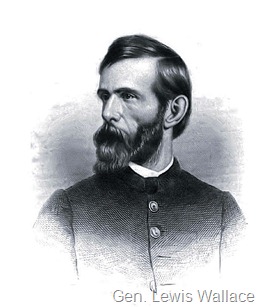May 12.—General McClellan, in camp at Roper’s Church, Virginia, sent the following despatch to the War Department:
“Commander Rodgers writes me to-day that he went with the gunboats yesterday past Little Brandon. Every thing quiet and no signs of troops crossing the river. He found two batteries, of ten or twelve guns each, on the south side of James River; one opposite the mouth of the Warwick, the other about south-west from Mulberry Point.
“The upper battery, on Hardin’s, or Mother Pine’s Bluff, has heavy rifled pieces. Between the batteries lay the Jamestown and Yorktown. Commander Rodgers offered battle, but the gunboats moved off. He silenced one battery and ran past the other.”
—Harvey Brown was confirmed as Brevet Brigadier-General in the United States army.
— President Lincoln issued a proclamation declaring that the blockade of the ports of Beaufort, Port Royal, and New-Orleans shall so far cease and determine, from and after the first of June next, that commercial intercourse with these ports, except as to persons and things and information contraband of war, may from that time be carried on, subject to the laws of the United States and to the limitations and in pursuance of the regulations which are prescribed by the Secretary of the Treasury.— (Doc. 14.)
—Commander Palmer, of the United States steamer Iroquois, demanded the surrender of the city of Natchez, Mississippi, to the naval forces of the United States.
—Two regiments from Kentucky and Tennessee attempted to desert from the rebel army, near Corinth, but were forcibly detained.—The rebel steamer Gov. Morton was captured.
—The United States Senate passed Mr. DooIittle’s bill providing for the collection of taxes in the insurrectionary districts.—During a debate on the motion fixing a time of adjournment, Mr. Wilson called Mr. Davis, of Kentucky, to order for uttering treasonable sentiments. After some explanation the point of order was withdrawn, and the motion laid on the table.
—A Convention of Unionists was held at Nashville, Tennessee, this day. Patriotic resolutions were adopted without dissent, and eloquent addresses were made by Governor Andrew Johnson, William H. Polk, General Campbell, Wm. B. Stokes, W. H. Wisner, Edmund Cooper, and others. A committee was appointed to prepare an address to the people of the State; and the policy of Governor Johnson was “cordially approved.”— (Doc. 97.)
—The Charleston (S. C.) Courier of this date congratulates the citizens of Charleston upon their being four times stronger than New-Orleans. Large consignments of stones from Columbia and the interior, and iron chains and other materials will soon be on their way to aid in constructing a stone wall to block out the invaders from approaching within shelling distance of the city. The Southern papers condemn General Butler’s order No. 28, as “cowardly and infamous,” but do not publish it
—This night a party under Lieut. Flusser of the Commodore Perry went on shore six miles above Elizabeth City, N. C, and three miles into the country, and recovered the White Point Light-House apparatus. To prevent information of the movement being conveyed to some rebel cavalry in the neighborhood, all the men found on the route were retained until every thing had been conveyed to one of the boats, which was done by some rebel teams pressed into the service.— Official Report.



